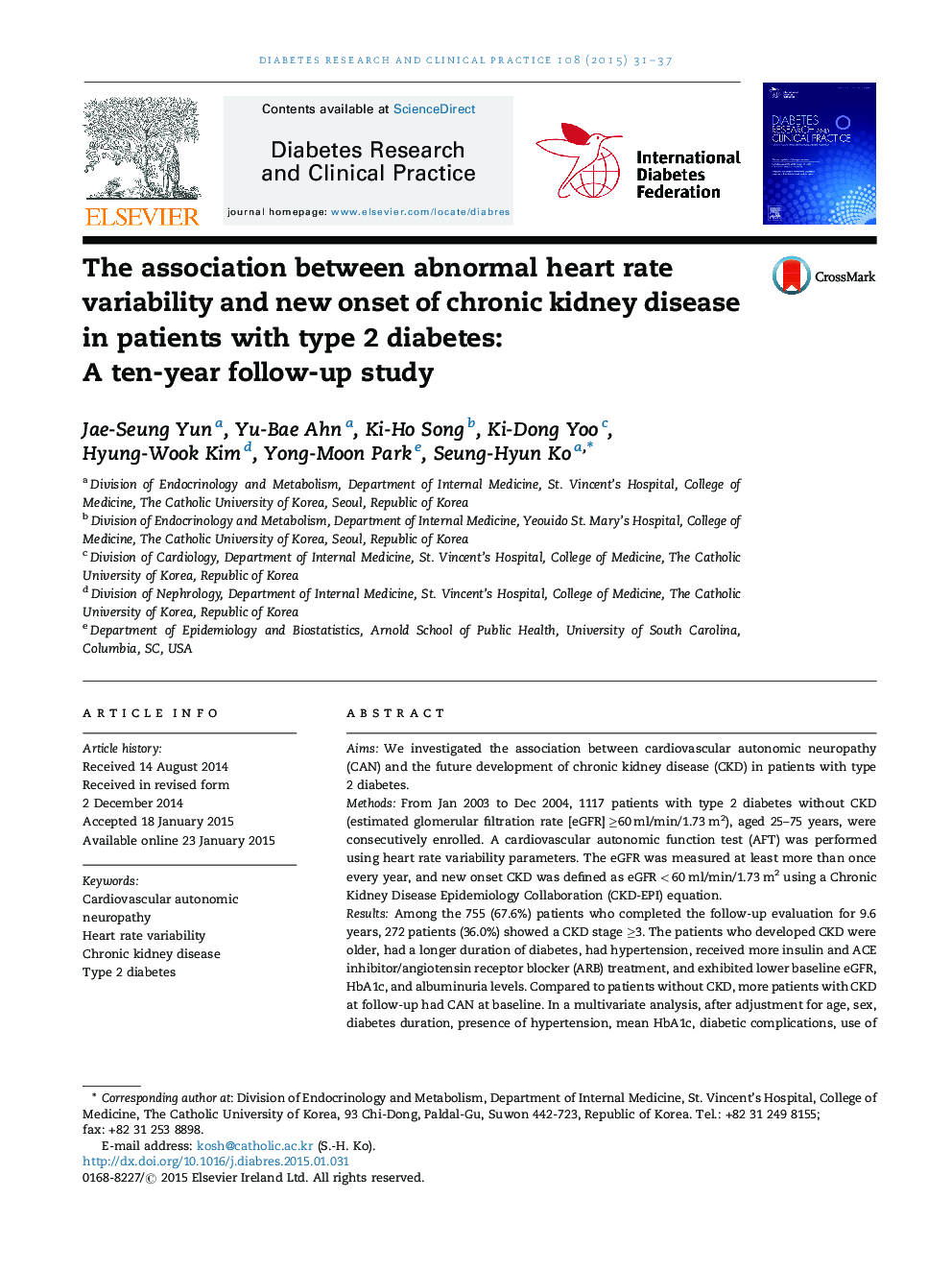| Article ID | Journal | Published Year | Pages | File Type |
|---|---|---|---|---|
| 5899332 | Diabetes Research and Clinical Practice | 2015 | 7 Pages |
â¢Cardiovascular autonomic neuropathy is common and clinically important complication in patients with type 2 diabetes.â¢The number of the patients with chronic kidney disease increases as the severity of cardiovascular autonomic neuropathy increases.â¢Even patients with early cardiovascular autonomic neuropathy have a risk for chronic kidney disease.
AimsWe investigated the association between cardiovascular autonomic neuropathy (CAN) and the future development of chronic kidney disease (CKD) in patients with type 2 diabetes.MethodsFrom Jan 2003 to Dec 2004, 1117 patients with type 2 diabetes without CKD (estimated glomerular filtration rate [eGFR] â¥60 ml/min/1.73 m2), aged 25-75 years, were consecutively enrolled. A cardiovascular autonomic function test (AFT) was performed using heart rate variability parameters. The eGFR was measured at least more than once every year, and new onset CKD was defined as eGFR < 60 ml/min/1.73 m2 using a Chronic Kidney Disease Epidemiology Collaboration (CKD-EPI) equation.ResultsAmong the 755 (67.6%) patients who completed the follow-up evaluation for 9.6 years, 272 patients (36.0%) showed a CKD stage â¥3. The patients who developed CKD were older, had a longer duration of diabetes, had hypertension, received more insulin and ACE inhibitor/angiotensin receptor blocker (ARB) treatment, and exhibited lower baseline eGFR, HbA1c, and albuminuria levels. Compared to patients without CKD, more patients with CKD at follow-up had CAN at baseline. In a multivariate analysis, after adjustment for age, sex, diabetes duration, presence of hypertension, mean HbA1c, diabetic complications, use of insulin, ACE inhibitor/ARB, statin, and baseline eGFR, the development of CKD was significantly associated with the presence of CAN (HR 2.62, 95% CI 1.87-3.67, P < 0.001).ConclusionsIn this prospective, longitudinal, observational cohort study, we demonstrated that diabetic CAN was an independent prognostic factor for the future development of CKD in type 2 diabetes.
